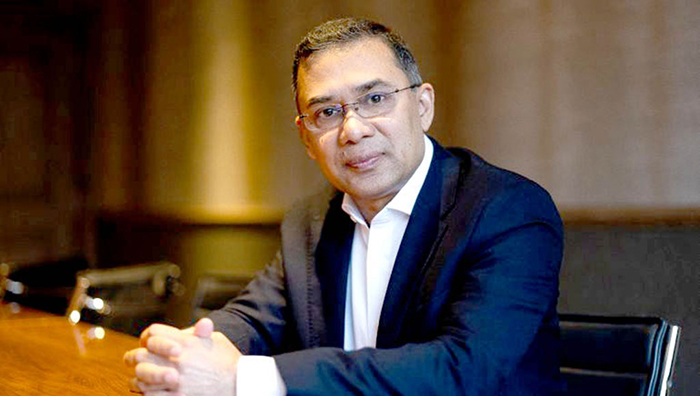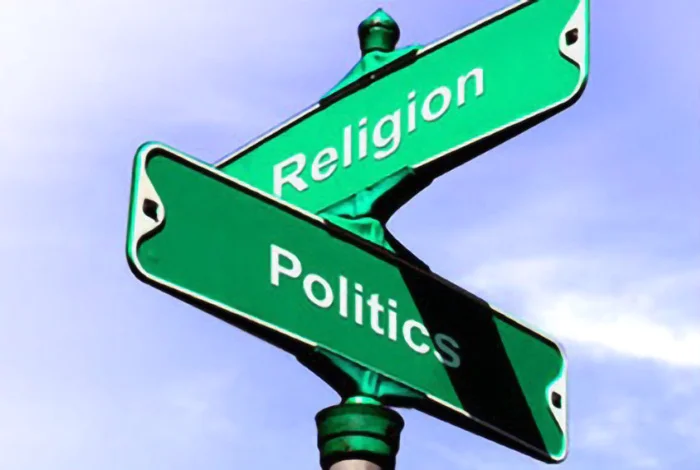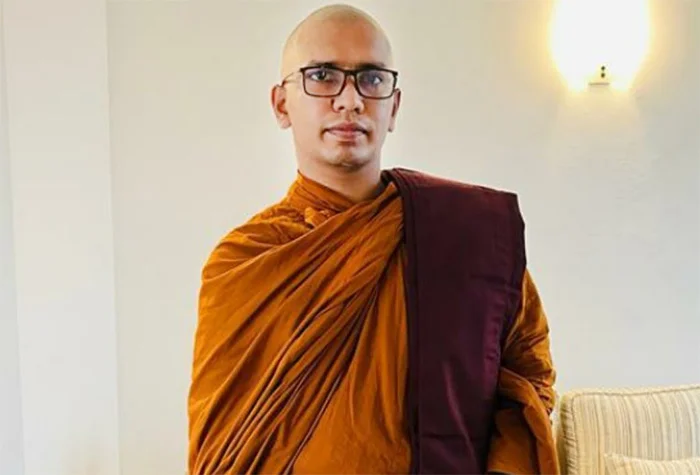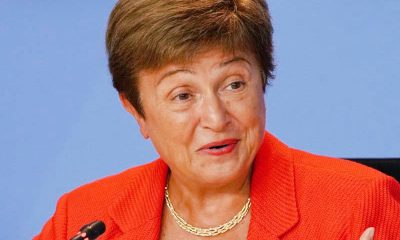Opinion
Politicians exploit National disasters for personal gain

Throughout history, the vast majority of politicians the world over have been self-serving, while professing aloud to work for the emancipation of their people. Apart from a few leaders, such as Nelson Mandela of South Africa, Angela Merkel of Germany and a handful of others, this truth is universal. This selfish behaviour of politicians is disastrous, especially in the third world countries which lead virtually a day-to-day existence, with large numbers of the population being below the poverty line.
The deepening economic hardship Sri Lanka is undergoing at present, is the direct result of the fraudulent activities of the self-serving corrupt politicians ever since independence, more so in the past 40 years. Apart from almost routine daylight robbery of the national treasury by the political minions taking place on an almost daily basis, it is shameful how national disasters have been exploited by the leaders for personal gratification.
Draining the national coffers, during the ethnic conflict, allegations of financial fraud on purchases of aircraft and weaponry was commonplace. Due to the political power of those deemed responsible, details are unlikely to be divulged, and culprits are unlikely to be indicted.
The last phase of the Eelam war began with the Tigers blocking the Mavil Aru irrigation dam. This caused much financial hardship to the farmers who experienced a large scale loss of crop. A sizable proportion of the funds sent as relief ended up in the private bank account of the spouse of a local politician. Though all the bank details were divulged in the press, no action was taken to recover the loot or to punish the offender. The politician concerned remains a noisy minister in the government to this day.
The 2004 tsunami was the most devastating natural disaster the country experienced in its history. Over 30,000 people lost their lives, and many of the bodies have not been recovered even. Thousands more lost their house and property and their livelihoods. Such human suffering had never been seen on the island before. Large amounts of money, material and humanitarian aid came in from concerned donors, both local and abroad. Yet again millions of rupees in the relief fund ended up in the bank account of the wife of the local political heavyweight. When the courts were about to apprehend the culprit, the judge who happened to be a close friend of the politician, dismissed the case. It was shameful how at a later date the judge apologized to the nation, admitting that he committed an offence by letting a wrongdoer off the hook. Both the politician and the judge remain free to keep preaching to the people on the virtues of honesty!
The COVID-19 pandemic is spreading all over the country taking away many lives on a daily basis. However, it has become a money spinner for the politicians and their henchmen. While the henchmen openly engage in the COVID business, defrauding the people, there is no doubt that the politicians are reaping the benefits behind the scene. Those closely connected to the ruling family were given the business of repatriation of Sri Lankans from affected regions abroad, and their quarantining in selected hotels. Even those doing lower rung jobs in the Middle East to come out of poverty at home, were charged exorbitant sums, sometimes amounting to a full one year’s salary, for airfare, hotels, etc. They were not allowed to board the planes unless they made the full payment for the hotel stay or the exaggerated costs of PCR testing as well. The private sector is profiteering on serological testing. There is no attempt to control prices, thus allowing the businessmen to make hay when the sun shines.
While the entry at airports was restricted, a cousin of the leader, already accused in a previous financial fraud, was entrusted to bring in plane loads of Ukrainian tourists in a lucrative business. They were allowed free movement in the cultural triangle, violating all quarantine regulations. Later, yet another close family member was involved in a programme of bringing in Indians for quarantining here, as they were not accepted anywhere else. While both these were profitable ventures for those involved, the country ran the risk of bringing in more virulent strains of the virus prevailing in their countries of origin. In fact those foreigners are said to be responsible for such strains causing disease in the country now. While preaching “one country, one law” the current leadership has ensured that their family members and henchmen operated under a different set of rules allowing a free run.
How a fund of nearly two billion rupees collected as donations from various sources was spent is now being questioned. The expenses revealed in the accounts published so far, leave many questions unanswered. There is no doubt that even this fund has been defrauded by the political masters.
The government has been making use of COVID cover for political misdemeanors as well. Having come to power exploiting the Easter Sunday bombing, they somewhat successfully controlled the first COVID cycle. That success was used as campaign propaganda for the general election, obtaining a massive victory. Later, during the second cycle when public gatherings and other political activity was prohibited, a controversial 20th Amendment to the constitution amassing many powers in the hands of the President, was pushed through the parliament.
Now under the cover of the rapidly worsening third COVID cycle, with restrictions of movement, political activity, mass gatherings and curfews in place, the Port City Bill with even more potentially disastrous long-term consequences, was going to be rushed through, not allowing public discussion such controversial legislation richly deserves. Fortunately, the Supreme Court has intervened to remove the provisions that were obviously against the constitution of the country. How our leaders attempted to catch the citizens blindfolded and wrong footed is obvious. Surely, it should have been obvious to the legal experts in the Cabinet, and others involved in drafting the Bill, how it goes against the basic tenets of the constitution. In all probability they had realised it. That is why every attempt was made to prevent the people petitioning the Supreme Court within the stipulated seven days. They made use of the long New Year holiday period, and declared an additional holiday as well, leaving only two days for action. All these attempts were foiled by the timely action of the law abiding citizens. The impression given is that our so-called patriotic leaders are prepared to go the full distance to please their foreign partners, sacrificing the fundamental rights and interests of our own people. No doubt our leaders had something, probably dirty lucre, to gain from this treacherous deal.
History will record the current leadership, as the worst traitors we have ever had, as they are doing all the evil under the cover of a thick cloak of patriotism, hoodwinking the people.
We live in a country where nearly 75% are Buddhists. There is co-existence with Christians, Hindus and Muslims in a multi-religious society. All religions preach the virtues of honesty, compassion, kindness and peaceful living. The percentage of the population that follows and practises their religions is said to be somewhat higher than in the rest of the world. We are also aware that despite all the religious beliefs, greed for money and material is a basic, innate evil of man. When this weakness manifests itself in those in authority with ready access to such wealth available for stealing, whole societies suffer. It is particularly treacherous when these unscrupulous leaders go down to the level of exploiting the misery of their countrymen in times of national disasters as well.
Thus, various instances of national disasters as described above have been exploited by politicians and their acolytes for personal, mostly financial gain. As a result, we hear on a daily basis, the cries and curses of the people suffering with untold hardship. Buddhists believe in retribution. We can only hope that the rogues disguised as Samaritans suffer that retribution sooner than later, as they are unlikely to be apprehended by the laws of the land.
DISGUSTED SRI LANKAN
Opinion
What BNP should keep in mind as it assumes power

BNP rightly deserves our congratulations for winning a decisive victory in the 13th parliamentary election. This outcome reflects an unequivocal mandate that is both politically and historically significant. Coming as it does at a critical point in Bangladesh’s democratic journey, this moment marks more than a change of government; it signals a renewed public resolve to restore democratic norms, accountability, and institutional integrity.
The election came after years of severe distrust in the electoral process, questions over legitimacy, and institutional strain, so the poll’s successful conduct has reinforced trust in the process as well as the principle that governments derive authority from the consent of the governed. For quite some time now, Bangladesh has faced deep polarisation, intolerance, and threats to its democratic foundations. Regressive and anti-democratic tendencies—whether institutional, ideological, or political—risked steering the country away from its foundational goals. BNP’s decisive victory can therefore be interpreted as a call to reverse this trajectory, and a public desire for accountable, forward-looking governance rooted in liberal democratic principles.
However, the road ahead is going to be bumpy, to put it mildly. A broad mandate alone cannot resolve deep-rooted structural problems. The BNP government will likely continue to face economic challenges and institutional constraints for the foreseeable future. This will test its capacity and sincerity not only to govern but also to transform the culture of governance in the country.
Economic reform imperatives
A key challenge will be stabilising the economy, which continues to face mounting pressures: growth has decelerated, inflation has eroded people’s purchasing power, foreign exchange reserves remain low, and public finances are tight. External debt has increased significantly in recent years, while the tax-to-GDP ratio has fallen to historically low levels. State-owned enterprises and the banking sector face persistent structural weaknesses, and confidence among both domestic and international investors remains fragile.
The new government should begin by restoring macroeconomic discipline. Containing inflation will need close coordination across ministries and agencies. Monetary policy must remain cautious and credible, free from political interference, while fiscal policy should prioritise stability rather than expand populist spending.
Tax reform is also unavoidable. The National Board of Revenue requires comprehensive modernisation, digitalisation, and total compliance. Broadening the tax base, especially by bringing all high-income groups and segments of the informal economy into the formal system, is crucial. Over time, reliance on indirect taxes such as value-added tax and import duties should be reduced, paving the way for a more progressive direct tax regime.
Banking sector reform is equally crucial. Proper asset quality reviews and regulatory oversight are necessary to rebuild confidence in the sector. Political patronage within the financial institutions must end. Without a resilient financial system, private investment cannot recover. As regards growth, the government should focus on diversifying exports beyond ready-made garments and deepening integration into regional value chains. Attracting foreign direct investment will depend on regulatory predictability and improvements in logistics and energy reliability. Ambitious growth targets must be matched by realistic implementation capacity.
Political Challenges
Distrust among political actors, partly fuelled by fears of retribution and violence, is a reality that may persist. BNP will face pressure from its supporters to act quickly in addressing perceived injustices, but good governance demands restraint. If the new government resorts to or tolerates exclusion or retaliation, it will risk perpetuating the very cycle it has condemned.
Managing internal party discipline will also be crucial, as a large parliamentary majority can sometimes lead to complacency or factional rivalry. Strong leadership will be required to maintain unity while allowing constructive internal debate. BNP must also rebuild trust with minority communities and vulnerable groups. Elections often heighten anxieties among minorities, so a credible commitment to equal citizenship is crucial. BNP’s political maturity will also be judged by how it treats or engages with its opponents. In this regard, Chairman Tarique Rahman’s visits to the residences of top opposition leaders on Sunday marked a positive gesture, one that many hope will withstand the inevitable pressures or conflicts over governance in the coming days.
Strengthening democratic institutions
A central promise of this election was to restore democracy, which must now translate into concrete institutional reforms. Judicial independence needs constant safeguarding. Which means that appointment, promotion, and case management processes should be insulated from political influence. Parliamentary oversight committees must also function effectively, and the opposition’s voice in parliament must be protected.
Electoral institutions also need reform, particularly along the lines of the July Charter. Continued credibility of the Election Commission will depend on transparency, professional management, and impartiality. Meanwhile, the civil service must be depoliticised. Appointments based on loyalty rather than merit have long undermined governance in the country. So the new administration must work on curtailing the influence of political networks to ensure a professional, impartial civil service. Media reform and digital rights also deserve careful attention. We must remember that democratic consolidation is built through institutional habits, and these habits must be established early.
Beyond winner-takes-all
Bangladesh’s politics has long been characterised by a winner-takes-all mentality. Electoral victories have often resulted in monopolisation of power, marginalising opposition voices and weakening checks and balances. If BNP is serious about democratic renewal, it must consciously break with this tradition. Inclusive policy consultations will be a good starting point. Major economic and constitutional reforms should be based on cross-party dialogue and consensus. Appointments to constitutional bodies should be transparent and consultative, and parliamentary debates should be done with the letter and spirit of the July Charter in mind.
Meeting public expectations
The scale of public expectations now is naturally immense. Citizens want economic relief, employment opportunities, necessary institutional reforms, and improved governance. Managing these expectations will be quite difficult. Many reforms will not yield immediate results, and some may impose short-term costs. So, it is imperative to ensure transparent communication about the associated timelines, trade-offs, and fiscal constraints.
Anti-corruption efforts must be credible and monitored at all times. Measures are needed to strengthen oversight institutions, improve transparency in public procurement, and expand digital service delivery to reduce opportunities for rent-seeking. Governance reform should be systematic, not selective or politically driven. Tangible improvements are urgently needed in public service delivery, particularly in health, education, social protection, and local government.
Finally, a word of caution: BNP’s decisive victory presents both opportunities and risks. It can enable bold reforms but it also carries the danger of overreach. The key deciding factor here is political judgment. The question is, can our leaders deliver based on the mandate voters have given them? (The Daily Star)
Dr Fahmida Khatun is an economist and executive director at the Centre for Policy Dialogue (CPD). Views expressed in the article are the author’s own.
Views expressed in this article are the author’s own.
by Fahmida Khatun
Opinion
Why religion should remain separate from state power in Sri Lanka: Lessons from political history

Religion has been an essential part of Sri Lankan society for more than two millennia, shaping culture, moral values, and social traditions. Buddhism in particular has played a foundational role in guiding ethical behaviour, promoting compassion, and encouraging social harmony. Yet Sri Lanka’s modern political history clearly shows that when religion becomes closely entangled with state power, both democracy and religion suffer. The politicisation of religion especially Buddhism has repeatedly contributed to ethnic division, weakened governance, and the erosion of moral authority. For these reasons, the separation of religion and the state is not only desirable but necessary for Sri Lanka’s long-term stability and democratic progress.
Sri Lanka’s post-independence political history provides early evidence of how religion became a political tool. The 1956 election, which brought S. W. R. D. Bandaranaike to power, is often remembered as a turning point where Sinhala-Buddhist nationalism was actively mobilised for political expedience. Buddhist monks played a visible role in political campaigning, framing political change as a religious and cultural revival. While this movement empowered the Sinhala-Buddhist majority, it also laid the foundation for ethnic exclusion, particularly through policies such as the “Sinhala Only Act.” Though framed as protecting national identity, these policies marginalised Tamil-speaking communities and contributed significantly to ethnic tensions that later escalated into civil conflict. This period demonstrates how religious symbolism, when fused with state power, can undermine social cohesion rather than strengthen it.
The increasing political involvement of Buddhist monks in later decades further illustrates the risks of this entanglement. In the early 2000s, the emergence of monk-led political parties such as the Jathika Hela Urumaya (JHU) marked a new phase in Sri Lankan politics. For the first time, monks entered Parliament as elected lawmakers, directly participating in legislation and governance. While their presence was justified as a moral corrective to corrupt politics, in practice it blurred the boundary between spiritual leadership and political power. Once monks became part of parliamentary debates, policy compromises, and political rivalries, they were no longer perceived as neutral moral guides. Instead, they became political actors subject to criticism, controversy, and public mistrust. This shift significantly weakened the traditional reverence associated with the Sangha.
Sri Lankan political history also shows how religion has been repeatedly used by political leaders to legitimise authority during times of crisis. Successive governments have sought the public endorsement of influential monks to strengthen their political image, particularly during elections or moments of instability. During the war, religious rhetoric was often used to frame the conflict in moral or civilisational terms, leaving little room for nuanced political solutions or reconciliation. This approach may have strengthened short-term political support, but it also deepened ethnic polarisation and made post-war reconciliation more difficult. The long-term consequences of this strategy are still visible in unresolved ethnic grievances and fragile national unity.
Another important historical example is the post-war period after 2009. Despite the conclusion of the war, Sri Lanka failed to achieve meaningful reconciliation or strong democratic reform. Instead, religious nationalism gained renewed political influence, often used to silence dissent and justify authoritarian governance. Smaller population groups such as Muslims and Christians in particular experienced growing insecurity as extremist groups operated with perceived political protection. The state’s failure to maintain religious neutrality during this period weakened public trust and damaged Sri Lanka’s international reputation. These developments show that privileging one religion in state power does not lead to stability or moral governance; rather, it creates fear, exclusion, and institutional decay.
The moral authority of religion itself has also suffered as a result of political entanglement. Traditionally, Buddhist monks were respected for their distance from worldly power, allowing them to speak truth to rulers without fear or favour. However, when monks publicly defend controversial political decisions, support corrupt leaders, or engage in aggressive nationalist rhetoric, they risk losing this moral independence. Sri Lankan political history demonstrates that once religious figures are seen as aligned with political power, public criticism of politicians easily extends to religion itself. This has contributed to growing disillusionment among younger generations, many of whom now view religious institutions as extensions of political authority rather than sources of ethical guidance.
The teachings of the Buddha offer a clear contrast to this historical trend. The Buddha advised rulers on ethical governance but never sought political authority or state power. His independence allowed him to critique injustice and moral failure without compromise. Sri Lanka’s political experience shows that abandoning this principle has harmed both religion and governance. When monks act as political agents, they lose the freedom to challenge power, and religion becomes vulnerable to political failure and public resentment.
Sri Lanka’s multi-religious social structure nurtures divisive, if not separatist, sentiments. While Buddhism holds a special historical place, the modern state governs citizens of many faiths. Political history shows that when the state appears aligned with one religion, minority communities feel excluded, regardless of constitutional guarantees. This sense of exclusion has repeatedly weakened national unity and contributed to long-term conflict. A secular state does not reject religion; rather, it protects all religions by maintaining neutrality and ensuring equal citizenship.
Sri Lankan political history clearly demonstrates that the fusion of religion and state power has not produced good governance, social harmony, or moral leadership. Instead, it has intensified ethnic divisions, weakened democratic institutions, and damaged the spiritual credibility of religion itself. Separating religion from the state is not an attack on Buddhism or Sri Lankan tradition. On the contrary, it is a necessary step to preserve the dignity of religion and strengthen democratic governance. By maintaining a clear boundary between spiritual authority and political power, Sri Lanka can move toward a more inclusive, stable, and just society one where religion remains a source of moral wisdom rather than a tool of political control.
In present-day Sri Lanka, the dangers of mixing religion with state power are more visible than ever. Despite decades of experience showing the negative consequences of politicised religion, religious authority continues to be invoked to justify political decisions, silence criticism, and legitimise those in power. During recent economic and political crises, political leaders have frequently appeared alongside prominent religious figures to project moral legitimacy, even when governance failures, corruption, and mismanagement were evident. This pattern reflects a continued reliance on religious symbolism to mask political weakness rather than a genuine commitment to ethical governance.
The 2022 economic collapse offers a powerful contemporary example. As ordinary citizens faced shortages of fuel, food, and medicine, public anger was directed toward political leadership and state institutions. However, instead of allowing religion to act as an independent moral force that could hold power accountable, sections of the religious establishment appeared closely aligned with political elites. This alignment weakened religion’s ability to speak truthfully on behalf of the suffering population. When religion stands too close to power, it loses its capacity to challenge injustice, corruption, and abuse precisely when society needs moral leadership the most.
At the same time, younger generations in Sri Lanka are increasingly questioning both political authority and religious institutions. Many young people perceive religious leaders as participants in political power structures rather than as independent ethical voices. This growing scepticism is not a rejection of spirituality, but a response to the visible politicisation of religion. If this trend continues, Sri Lanka risks long-term damage not only to democratic trust but also to religious life itself.
The present moment therefore demands a critical reassessment. A clear separation between religion and the state would allow religious institutions to reclaim moral independence and restore public confidence. It would also strengthen democracy by ensuring that policy decisions are guided by evidence, accountability, and inclusive dialogue rather than religious pressure or nationalist rhetoric. Sri Lanka’s recent history shows that political legitimacy cannot be built on religious symbolism alone. Only transparent governance, social justice, and equal citizenship can restore stability and public trust.
Ultimately, the future of Sri Lanka depends on learning from both its past and present. Protecting religion from political misuse is not a threat to national identity; it is a necessary condition for ethical leadership, democratic renewal, and social harmony in a deeply diverse society.
by Milinda Mayadunna
Opinion
NPP’s misguided policy

Judging by some recent events, starting with the injudicious pronouncement in Jaffna by President Anura Kumara Dissanayake and subsequent statements by some senior ministers, the government tends to appease minorities at the expense of the majority. Ill-treatment of some Buddhist monks by the police continues to arouse controversy, and it looks as if the government used the police to handle matters that are best left to the judiciary. Sangadasa Akurugoda concludes his well-reasoned opinion piece “Appeasement of separatists” (The island, 13 February) as follows:
“It is unfortunate that the President of a country considers ‘national pride and patriotism’, a trait that every citizen should have, as ‘racism’. Although the President is repeating it like a mantra that he will not tolerate ‘racism’ or ‘extremism’ we have never heard him saying that he will not tolerate ‘separatism or terrorism’.”
It is hard to disagree with Akurugoda. Perhaps, the President may be excused for his reluctance to refer to terrorism as he leads a movement that unleashed terror twice, but his reluctance to condemn separatism is puzzling. Although most political commentators consider the President’s comment that ‘Buddhist go to Jaffna to spread hate’ to be callous, the head of an NGO heaped praise on the President for saying so!
As I pointed out in a previous article, puppet-masters outside seem to be pulling the strings (A puppet show? The Island, 23 January) and the President’s reluctance to condemn separatism whilst accusing Buddhists of spreading hatred by going to Jaffna makes one wonder who these puppeteers are.
Another incident that raises serious concern was reported from a Buddhist Temple in Trincomalee. The police removed a Buddha statue and allegedly assaulted Buddhist priests. Mysteriously, the police brought back the statue the following day, giving an absurd excuse; they claimed they had removed it to ensure its safety. No inquiry into police action was instituted but several Bhikkhus and dayakayas were remanded for a long period.
Having seen a front-page banner headline “Sivuru gelawenakam pahara dunna” (“We were beaten till the robes fell”) in the January 13th edition of the Sunday Divaina, I watched on YouTube the press briefing at the headquarters of the All-Ceylon Buddhist Association. I can well imagine the agony those who were remanded went through.
Ven. Balangoda Kassapa’s description of the way he and the others, held on remand, were treated raises many issues. Whether they committed a transgression should be decided by the judiciary. Given the well-known judicial dictum, ‘innocent until proven guilty’, the harassment they faced cannot be justified under any circumstances.
Ven. Kassapa exposed the high-handed actions of the police. This has come as no surprise as it is increasingly becoming apparent as they are no longer ‘Sri Lanka Police’; they have become the ‘NPP police’. This is an issue often editorially highlighted by The Island. How can one expect the police to be impartial when two key posts are held by officers brought out of retirement as a reward for canvassing for the NPP. It was surprising to learn that the suspects could not be granted bail due to objections raised by the police.
Ven. Kassapa said the head of the remand prison where he and others were held had threatened him.
However, there was a ray of hope. Those who cry out for reconciliation fail to recognise that reconciliation is a much-misused term, as some separatists masquerading as peacemakers campaign for reconciliation! They overlook the fact that it is already there as demonstrated by the behaviour of Tamil and Muslim inmates in the remand prison, where Ven. Kassapa and others were kept.
Non-Buddhist prisoners looked after the needs of the Bhikkhus though the prison chief refused even to provide meals according to Vinaya rules! In sharp contrast, during a case against a Sri Lankan Bhikkhu accused of child molestation in the UK, the presiding judge made sure the proceedings were paused for lunch at the proper time.
I have written against Bhikkhus taking to politics, but some of the issues raised by Ven. Kassapa must not be ignored. He alleges that the real reason behind the conflict was that the government was planning to allocate the land belonging to the Vihara to an Indian businessman for the construction of a hotel. This can be easily clarified by the government, provided there is no hidden agenda.
It is no secret that this government is controlled by India. Even ‘Tilvin Ayya’, who studied the module on ‘Indian Expansionism’ under Rohana Wijeweera, has mended fences with India. He led a JVP delegation to India recently. Several MoUs or pacts signed with India are kept under wraps.
Unfortunately, the government’s mishandling of this issue is being exploited by other interested parties, and this may turn out to be a far bigger problem.
It is high time the government stopped harassing the majority in the name of reconciliation, a term exploited by separatists to achieve their goals!
By Dr Upul Wijayawardhana
-

 Business6 days ago
Business6 days agoMinistry of Brands to launch Sri Lanka’s first off-price retail destination
-

 Latest News2 days ago
Latest News2 days agoNew Zealand meet familiar opponents Pakistan at spin-friendly Premadasa
-

 Latest News2 days ago
Latest News2 days agoTariffs ruling is major blow to Trump’s second-term agenda
-

 Latest News2 days ago
Latest News2 days agoECB push back at Pakistan ‘shadow-ban’ reports ahead of Hundred auction
-

 Features6 days ago
Features6 days agoGiants in our backyard: Why Sri Lanka’s Blue Whales matter to the world
-

 Sports3 days ago
Sports3 days agoOld and new at the SSC, just like Pakistan
-

 News2 days ago
News2 days agoConstruction begins on country’s largest solar power project in Hambantota
-

 News5 days ago
News5 days agoIMF MD here













